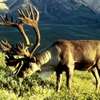
|
Dalton Highway, Alaska, United States

Margaret Kriz Hobson /
Scientific American /
March 8, 2017
The most recent study noted that Arctic thaw is occurring one to two weeks earlier than the first study, and the North Slope growing season is lengthening by 15 to 21 days. At the same time, however, caribou are maintaining the same reproductive timeline.
Read article
on Scientific American
|
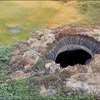
|
Sabetta, Yamalo-Nenets
 Siberia Times
Siberia Times /
April 11, 2017
The aim is to give warnings over seismic activity that could lead to the sudden formation of new craters, which could potentially damage key industrial infrastructure.
Read article
on Siberia Times
|
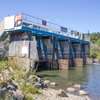
|
Lake Cowichan, British Columbia, Canada

Lexi Bainas /
Lake Cowichan Gazette /
April 5, 2017
It’s likely a lot of Cowichan Lake residents think there’s plenty of water around for the summer of 2017, given the winter we’ve been having. But, according to Cowichan River watcher Parker Jefferson, “We’re just about where we were last year.”
Read article
on Lake Cowichan Gazette
|
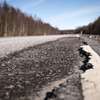
|
Southern Ostrobothnia, Finland

YLE News /
Eye on the Arctic /
April 7, 2017
The past three winters have been particularly hard on road pavements. Wet winters with temperatures fluctuating on both sides of the freezing point have damaged even relatively fresh asphalt, leading to cracks, potholes and deep ruts.
Read article
on Eye on the Arctic
|
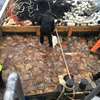
|
Sand Point, Alaska, United States

David Osterback and Kristin Cieciel /
LEO Network /
September 4, 2016
Purse seiner crew scrambles to shovel the huge bycatch of Northern sea nettle jelly fish (Chrysaora melanaster) overboard.
Read post on the LEO Network
|

|
Chuathbaluk, Alaska, United States

Patricia Yaska /
LEO Network /
April 17, 2016
We have had an extremely warm winter, and the river had many open holes that never froze completely.
Read post on the LEO Network
|
The Northern Climate Observer is published by the
Center for Climate and Health. We track news coverage from across the circumpolar north and provide readers with a curated roundup of climate change related events. Thank you for reading our newsletter and for paying attention to our changing world.
Please forward this newsletter or share it on social media. Join the
LEO Network to share your own stories of environmental change.